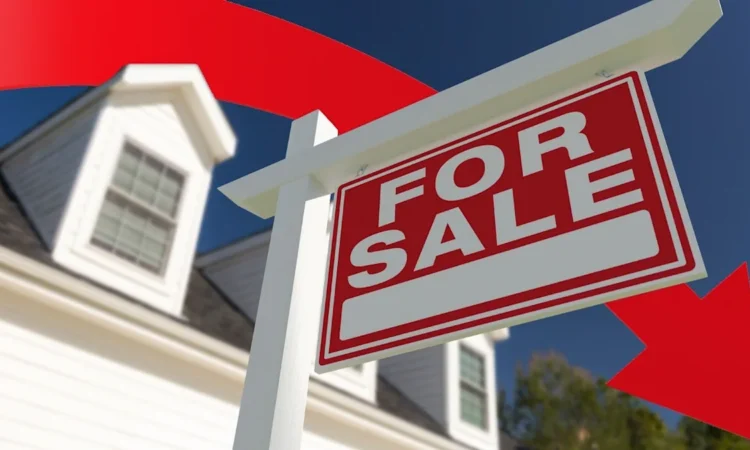
Few people put their house on the market hoping for a long, drawn-out process. So it can be tempting, if you put your house up for sale, to take the first offer that comes your way—especially if that offer is competitive.
Equally tempting? Waiting to see what the next offer is. It’s a bit like gambling, in a way: Eschewing the sure thing for a chance at a bigger payout. Your home is nice, the price is right—what if someone else swoops in and offers more, or makes an all-cash offer, or otherwise gives you something that the first offer didn’t?
The housing market has been cooling—September 2025 was the 18th straight month of homes taking longer to sell on a year-over-year basis. In this environment, balancing the desire to extract maximum value versus not letting your property sit too long has become even more delicate, and mismatched expectations of a “good deal” may be costing sellers opportunities.
That’s why there may be value in jumping on the first offer. We spoke to three real estate agents who advised us on why you shouldn’t always field multiple offers.
Know your pricing and selling strategy
Whether or not to jump on the first offer depends on many factors, including the property, the seller’s goals, and the strategy around pricing and selling, according to Alan Taylor, a real estate agent based in Los Angeles.
Different types of homes, and different strategies of selling them, may depend on waiting things out and seeing what other offers come in. For example, paradoxically, if you are in a rush to sell your home, you may want to wait a few days before accepting the first offer.
“If it’s a trust sale or the seller needs to sell quickly, the home is often priced on the lower side to generate interest. In that case, the goal is to attract as many offers as possible … and create a bidding war to reveal the true market value,” says Taylor. “That’s a situation where taking the first offer might not make sense because the momentum can drive the price higher.”
On the other hand, if you’re not in a rush and your home has been priced at the higher end of the market, a strong first offer may actually be worth taking quickly.
“If the home is more expensive and has already been sitting on the market for a while, and a strong offer comes in that’s just a little below asking, that’s a different story. A lot of times, agents know deep down that the home is overpriced, and that first solid offer might be the best one they’ll get. In those situations, I’d often tell the seller to take it seriously, because those are usually the offers that should be accepted,” says Taylor.
Your home does not age like wine
Your home will never be more attractive than when it first lands on the market.
“The first 7 to 10 days are typically when a home has the most online views and the most showing requests. After that, it tends to cool off,” says Ledeana Strand, a real estate agent based in Port Orchard, WA. “So if your home gets an offer early on, it is definitely worth paying attention to. Waiting for something better to come along can backfire, as the home sits on the market longer, buyers begin to wonder what’s wrong with it, and it becomes a stale listing quickly.”
If you have any concerns that your home may remain on the market longer than that first week or so, a quick first offer becomes much more appealing. If your home isn’t in a competitive area, or you’re aware of red flags that might dissuade buyers, you may want to prioritize getting a deal done before staleness sets in.
Is your buyer primed to buy?
Just as important as knowing your strategy and situation is understanding your potential buyer. Not every buyer will make the same offer, and—more importantly—not every buyer has the same story.
A buyer who just lost a bidding war? That’s a buyer to keep an eye on, says Fred Loguidice, the founder of Sell My House Wisconsin.
“When we get an initial offer that’s aggressive—let’s talk 2% to 3% over the ask—from a buyer who has a clear pattern of having just lost a comparable dwelling, that’s the offer that’s most likely to stick,” says Loguidice. “That buyer’s an active player who’s been searching long enough and now makes a strategic final offer that’s non-negotiable. Don’t wait around for a penny or two more, risking the buyer walking and taking that aggressive capital elsewhere. I’d tell that seller to take the win here.”
Lean on your agent here—they’ll be able to get these insights from the buyer’s agent. And it can lead to a mutually beneficial outcome, where the buyer doesn’t lose out on another home, and you get a strong offer on your home.
Why accepting a quick offer doesn’t mean selling yourself short
There are some obvious upsides to accepting the first offer on your home. You won’t have to wait long to close on a deal, you don’t have to worry about increasingly lowball offers as your home sits on the market, you’ll avoid continued mortgage payments and taxes, and you can move on with your life.
But it’s also important to remember that accepting the first offer doesn’t mean selling yourself short. It also doesn’t mean that that’s the final number you’ll end up with.
“If a seller accepts the first offer, it doesn’t mean they can’t negotiate the terms that work for them, whether it be price, timelines, contingencies, and so on,” says Strand. “In fact, early on is the most leverage a seller will have to accomplish this. Sometimes, small changes can make the deal even stronger.”
It’s also important to be able to identify when the first offer is a particularly strong one—worth considering right away.
“I tell my clients that the first offer that comes in at or above list and, more importantly, comes with zero contingencies should be given serious consideration,” says Loguidice. “We want clean offers packed with cash and coming without contingencies for an appraisal and inspection. The point at which the first offer arrives with the appraisal contingency waived and a 50% cash component of the offer is worth more than the chance of a slightly better offer that may never materialize.”
Offers like this are not only strong on paper, but are also designed to withstand the rigors of the homebuying process, where even good deals can fall through.
“The data from my brokerage indicates that deals without full waivers of the appraisal contingency close 20% quicker and fail at a rate that’s less than half that of deals that require full financing and full contingencies,” says Loguidice.
The bottom line: Don’t dismiss that first offer out of hand. While every situation is different, a strong early offer often represents genuine buyer interest at a time when your home has maximum market appeal. Work closely with your agent to evaluate not just the dollar amount, but the full package—and don’t be afraid to say yes if it makes sense.





